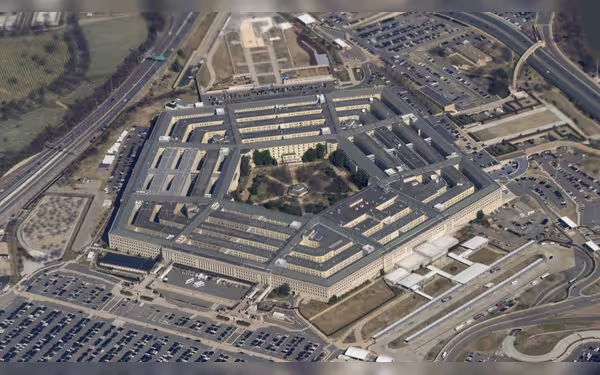Sunday, October 6, 2024 02:37 AM
US Enhances Military Readiness in Middle East Following Hezbollah Leader's Death
- US boosts air support amid rising Middle East tensions
- Troops placed on heightened readiness for deployment
- Israel intensifies operations against Hezbollah in Lebanon
 Image Credits: arabnewspk
Image Credits: arabnewspkThe US enhances military readiness in the Middle East following the killing of a Hezbollah leader, amid rising tensions and potential Iranian retaliation.
In recent developments, the United States has taken significant steps to bolster its military presence in the Middle East. This move comes amid rising tensions following the killing of a key leader of Hezbollah, a group backed by Iran. The U.S. military announced on Sunday that it is enhancing its air support capabilities and placing troops on heightened readiness to deploy to the region. This decision reflects the growing concern that Iran may retaliate, potentially escalating the ongoing conflict.
President Joe Biden's directive to the Pentagon to adjust U.S. force posture in the Middle East underscores the seriousness of the situation. Pentagon spokesperson Major General Patrick Ryder emphasized that the U.S. is committed to preventing Iran and its allies from taking advantage of the current circumstances. He stated, "The U.S. is determined to prevent Iran and Iranian-backed partners and proxies from exploiting the situation or expanding the conflict." This statement highlights the U.S. government's proactive approach to safeguarding its interests and personnel in the region.
As tensions rise, Israel has intensified its military operations, targeting Hezbollah in Lebanon. The recent strikes have resulted in significant losses for Hezbollah, including the deaths of its leadership. This escalation raises critical questions about the U.S.'s stated goals of containing the conflict and ensuring the safety of American personnel throughout the Middle East.
White House national security spokesperson John Kirby noted that the U.S. is closely monitoring Hezbollah's actions in response to the leadership vacuum created by these attacks. He mentioned that discussions with Israeli officials are ongoing to determine the appropriate next steps. Meanwhile, the U.S. State Department has not yet ordered an evacuation from Lebanon, although preparations are being made. Reports indicate that the Pentagon is sending additional troops to Cyprus to assist in potential evacuation scenarios.
In light of these developments, the Pentagon has increased the readiness of U.S. forces, preparing them for deployment if necessary. Ryder stated, "(Austin) increased the readiness of additional U.S. forces to deploy, elevating our preparedness to respond to various contingencies." This readiness reflects the U.S. military's commitment to ensuring the safety of its personnel and interests in a volatile region.
As the situation unfolds, it is crucial for observers to understand the complexities of the Middle East conflict. The U.S. military's actions are not just about immediate responses but also about long-term strategies to maintain stability in the region. The ongoing dialogue between the U.S. and its allies, coupled with military readiness, will play a vital role in shaping the future of U.S. involvement in the Middle East. The world watches closely as these developments could have far-reaching implications for international relations and regional security.













